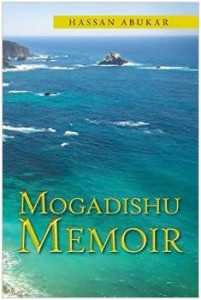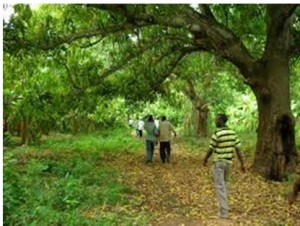Editors Note: Ololihii (The Campaign) is excerpted from the new book, Mogadishu Memoir, by Hassan M. Abukar, a frequent contributor to WardheerNews. The memoir is a personal account of the social and political events of Somalia as seen through the eyes of a young man coming of age. Published by the AuthorHouse, the book is available at Amazon.
—————–
From August 1974 to early March 1975, I was a 14-year old literacy teacher working and living in a rural area that was 362 kilometers from Mogadishu.
 Prior to those seven months, I had never spent more than two weeks away from home. For all practical purposes, I was a mama’s boy and led a sheltered life. Why not? I was my mother’s youngest child. My mother did not show any emotion about my impending departure, but her body language said much more. I could see her cynical face and sensed her asking herself, “What can a 14-year-old teach?” It was a government program, and no parent dared oppose it. I can only imagine now, as a parent, what it was like for those parents to watch their 13- and 14-year-old children being sent away to work for the good of their fellow countrymen.
Prior to those seven months, I had never spent more than two weeks away from home. For all practical purposes, I was a mama’s boy and led a sheltered life. Why not? I was my mother’s youngest child. My mother did not show any emotion about my impending departure, but her body language said much more. I could see her cynical face and sensed her asking herself, “What can a 14-year-old teach?” It was a government program, and no parent dared oppose it. I can only imagine now, as a parent, what it was like for those parents to watch their 13- and 14-year-old children being sent away to work for the good of their fellow countrymen.
President Barre eloquently told us, departing students, that the literacy program was a war against a pernicious disease called “ignorance.” He reiterated a popular slogan of the time; “bar ama baro” (“you either teach or learn”). I was scared, not because I was going away from home, but about what awaited me in the jungle. Like any Somali child of my generation, our parents had told us about wild animals like lions, leopards, hyenas, elephants, and African wild dogs. Somali parents have always warned their children that hyenas would grab them if they disobeyed or wandered outside. My mother, like many others, grew up in a rural area, and she told me the real and folklore stories about wild animals. I had grown up in a city and never saw wild animals except for a few wayward monkeys and baboons, unless they were in cages. My fear was that I would encounter wild animals because I had heard about their ferocity. I was going to the Lower Juba area, well known for its abundant share of wild animals. However, I acted as though I was not afraid.
The morning of my departure, my mother made me my favorite breakfast − flattened bread, small pieces of meat, and tea. I walked to Media Centrale School where hundreds of students had congregated. Many trucks were lined up on the streets to haul students to different villages, towns, and rural regions. Each student was given a blackboard that looked like a suitcase, chalks, a blanket, two pieces of cloth, and a military-style water canteen. President Barre gave an inspirational speech and told the students about the task ahead of them and their role as ambassadors of change. Our academic year that year was cancelled for the literacy program, and teachers were ordered to accompany us, supervise us and act as surrogate parents. We were going to towns, villages and remote areas where nomads lived and teach reading and writing. The illiteracy rate in Somalia at that time was about 80%, if not higher.

Students rode in the beds of uncovered trucks, and the teachers rode in the cabs. It was a hot, long day when we drove from Mogadishu in our caravan. After several hours, we finally came to Mundul, a small town that serves as a rest stop for travelers headed to Kismayo, Somalia’s third largest city. Because of the large number of students descending on Mundul, the restaurants were already out of food. Some of the students were fortunate and received meals. The food served in Mundul was, perhaps, one of the best tasting food I have ever eaten. I ate only a piece of roasted meat. Unfortunately, I was already sick by the time I took the meat. The intense heat, the long drive from Mogadishu, and perhaps the stress that I was experiencing added up. I threw up. Some students came to my aid, and the teacher in our truck was immediately notified. I was placed in the cab and allowed to lie on the back seat. I shared the cab with the driver and the teacher. A younger student (13) named Abdi had been riding in the cab prior to my illness, and I took his place. It was comfortable in the cab.
The teacher and the driver were talking, and I sat behind them. An hour after departing Mundul, it became dark and I slept like a baby. Of course, I was teased by some students because I was accused of orchestrating my sickness in order to get preferential treatment. But I knew better. I was not faking. After an hour or two, I felt much better. I had a chance to sleep and rest well. After more driving, we arrived in Jilib, which is 332 kilometers (206 miles) from Mogadishu. After another hour, we finally came to our destination, Jamaame, a town 362 km (225 miles) from home, and 54 km (33 miles) south of Kismayo. It was midnight when we entered the main square of Jamaame and were awakened by the ululating of a dozen women activists.
Students got out of the trucks, and the mayor of Jamaame gave a short speech to officially welcome us. For hospitality, we were paired with town residents and stayed with them for the next three days before we were sent to serve the rural area. Some residents only took one guest-student and others took two.
On my third day in Jamaame, students left for their assignments.
Excerpted from Mogadishu Memoir by Hassan M. Abukar (AuthorHouse, 2015). The book is available at amazon.com.
Hassan M. Abukar
——-
Hassan is a regular contributor to Wardheernews and the author of the newly published book, Mogadishu Memoir. He writes about politics, social issues, and Islamic groups. He can be reached at [email protected].
We welcome the submission of all articles for possible publication on WardheerNews.com. WardheerNews will only consider articles sent exclusively. Please email your article today . Opinions expressed in this article are those of the author and do not necessarily reflect the views of WardheerNews.
WardheerNew’s tolerance platform is engaging with diversity of opinion, political ideology and self-expression. Tolerance is a necessary ingredient for creativity and civility.Tolerance fuels tenacity and audacity.
WardheerNews waxay tixgelin gaara siinaysaa maqaaladaha sida gaarka ah loogu soo diro ee aan lagu daabicin goobo kale. Maqaalkani wuxuu ka turjumayaa aragtida Qoraaga loomana fasiran karo tan WardheerNews.
Copyright © 2024 WardheerNews, All rights reserved


